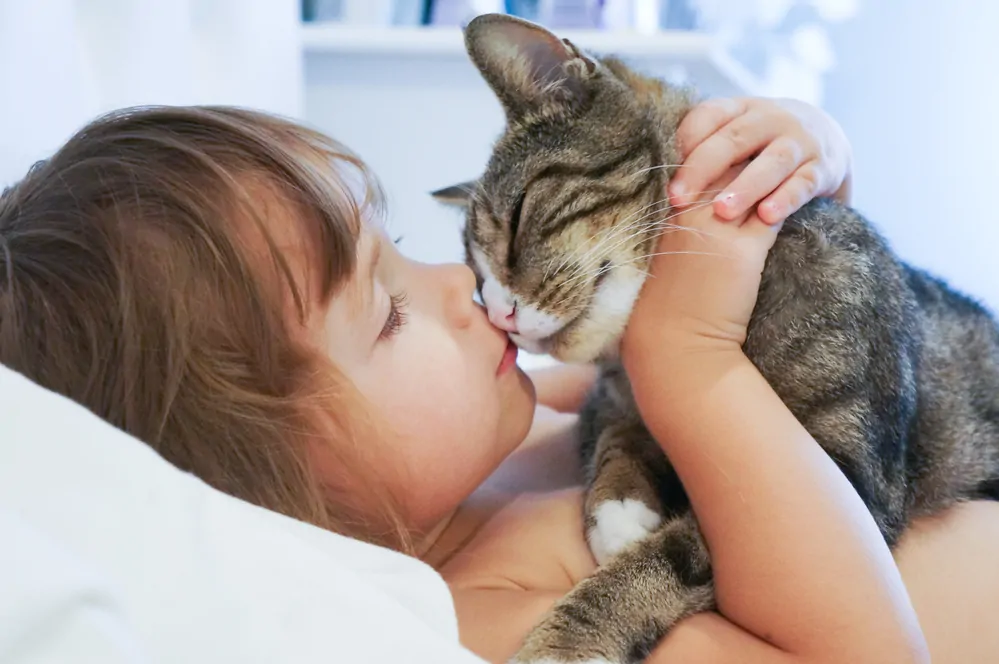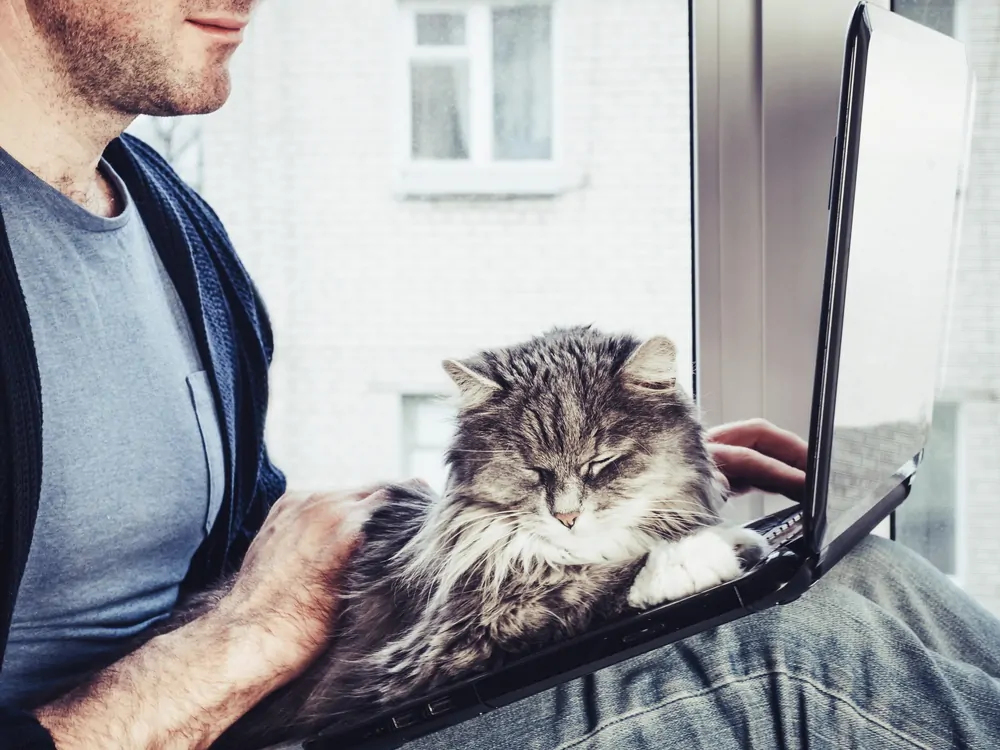Cats. They’re cute, cuddly, and… controversial?
While millions adore these furry companions, a significant number of people just don’t get the hype.
Some actively dislike them. The question is: why do people hate cats?
Is it their aloof nature, their hunting habits, or something else entirely?
Let’s dive deeper into the reasons behind this feline divide.
The Feline Enigma: Understanding the Dislike
It’s a tale as old as time – cats versus dogs.
But while the “cat person” versus “dog person” debate is often lighthearted, for some, the dislike of cats runs deeper.
To understand why people hate cats, we need to explore various factors, from personality traits to environmental concerns.
“People don’t hate cats; they just don’t understand them.” – A Cat Expert
Exploring the Reasons: Why People Dislike Cats
Let’s break down some of the most common reasons why people dislike cats.
1. Perceived Aloofness and Independence
One of the biggest complaints about cats is their perceived aloofness. Unlike dogs, who often greet their owners with enthusiastic tail wags and slobbery kisses, cats can seem indifferent, even when their owners crave affection.
- Dogs: Generally seen as eager to please, loyal, and affectionate. They actively seek attention and interaction.
- Cats: Often perceived as independent, self-sufficient, and less demonstrative in their affection. They might want to be petted only on their own terms.
This difference in personality traits can lead people to believe that cats are cold, uncaring, or even arrogant. People who like cats, on the other hand, appreciate this independence.
2. Cat Allergies: A Physical Barrier
For many, the reason they dislike cats is simple: allergies. Cat allergies are incredibly common, triggered by proteins found in a cat’s saliva, skin, and urine. Symptoms can range from mild sneezing and itchy eyes to severe asthma attacks.
| Symptom | Description |
|---|---|
| Sneezing | Frequent sneezing fits when around cats. |
| Itchy Eyes | Red, watery, and itchy eyes. |
| Runny Nose | Constant nasal congestion and discharge. |
| Skin Rash | Hives or eczema-like rashes upon contact with cat hair or dander. |
| Asthma | Difficulty breathing, wheezing, and chest tightness. |
| Congestion | Blocked nasal passages |
For those who suffer from these symptoms, being around cats is simply unpleasant, making it difficult to form any positive associations. They may dislike cats because of the physical discomfort they experience around cats.
3. Concerns About Killing Birds and Wildlife 🐦
Another significant reason why people may dislike cats is their impact on the environment, specifically their tendency to hunt birds and other small animals.
While cat lovers may argue that it’s “just their nature,” conservationists point out that cats, especially feral and stray cats, can have a devastating impact on local ecosystems.
- Cats are natural predators: Their hunting instincts are strong, even in well-fed domestic cats.
- Impact on bird populations: Cats are a major threat to bird populations, especially in urban and suburban areas.
- Impact on small mammals: Cats also prey on mice, voles, and other small mammals, disrupting the food chain.
Many people who dislike cats do so because they believe that cats are responsible for the unnecessary deaths of countless animals.
4. Misunderstanding Feline Behavior
Cats communicate in ways that are often subtle and easily misinterpreted by humans.
People who have never owned a cat or spent much time around cats may misread their body language, leading to frustration and dislike.
For example:
- A cat hissing: This is a clear sign of fear or aggression, but some people may interpret it as the cat being “mean” or “evil.”
- A cat scratching: Scratching is a natural behavior for cats, used to sharpen their claws and mark their territory. However, if a cat scratches furniture instead of a scratching post, it can be frustrating for owners.
- A cat biting: Cats may bite when they’re overstimulated, scared, or in pain. People who dislike cats may interpret this as a sign of aggression.
Learning to understand a cat’s body language is key to building a positive relationship. A cat expert can help owners understand why cats may hiss, scratch, or bite.
5. Past Bad Experiences
A negative experience with a cat can shape someone’s perception of all cats for years to come. This could be anything from being scratched or bitten as a child to witnessing a cat behaving aggressively towards another animal.
For example, someone who was attacked by a feral cat as a child may develop a lifelong fear and dislike of cats. Similarly, someone who owned a cat that constantly sprayed or destroyed furniture may develop negative associations.
6. The “Independent” vs. “Needy” Pet Preference
Some people simply prefer pets that are more outwardly dependent and eager to please. They may view a cat’s independence as a lack of affection or loyalty.
Think of it this way:
- Dog People: Often enjoy the constant companionship, enthusiastic greetings, and the feeling of being needed.
- Cat People: Often appreciate a pet that is low-maintenance, independent, and doesn’t demand constant attention.
It really boils down to personality preference. People who dislike cats often do so because they prefer the type of interaction they have with dogs.
7. Litter Box Issues and Odor
Let’s face it: the litter box is not the most appealing aspect of cat ownership. Some people are turned off by the idea of cleaning up cat waste, and the potential for unpleasant odors.
If a cat is not properly litter-trained, or if the litter box is not cleaned regularly, it can create a smelly and unsanitary environment.
Cats that spray urine to mark their territory can also create a strong, unpleasant odor that can be difficult to eliminate.
8. The “Sneaky” or “Devious” Stereotype
Cats sometimes get a bad rap for being sneaky or devious.
This stereotype may stem from their hunting behavior, their tendency to hide in unexpected places, or their ability to get away with things.
For example, a cat might knock over a glass on a table and then act innocent, or they might sneak into a room that they’re not supposed to be in. While cat lovers may find this behavior amusing, others may find it annoying or untrustworthy.
9. Cats are Women Stereotype
This stereotype is harmful and untrue, but it still exists.
It suggests that cats are somehow inherently feminine, and that men who like cats are somehow less masculine. This is based on outdated and sexist ideas about gender roles.
10. The Perception of Cats as “Killing Machines”
While domestic cats are often cherished pets, their hunting instincts remain strong.
This can lead to conflicts with neighbors and concerns about the impact on local wildlife. People who dislike cats may view them as “killing machines” that are a threat to birds, mice, and other small animals.
“Cats are cute, but they’re also predators. It’s important to be aware of their impact on the environment.” – A Wildlife Expert
Do Cat Haters Have a Point? Addressing Common Concerns
While many of the reasons for disliking cats are based on personal preferences or misunderstandings, some concerns are valid and worth addressing.
- Cat overpopulation: The number of stray and feral cats is a serious problem in many areas. These cats can suffer from disease, hunger, and injuries, and they can also contribute to the decline of bird populations.
- The spread of diseases: Cats can carry diseases that are transmissible to humans, such as toxoplasmosis and ringworm. While these diseases are usually not serious, they can be a concern for pregnant women and people with weakened immune systems.
- Environmental damage: As mentioned earlier, cats can have a significant impact on local ecosystems. They prey on birds, mice, and other small animals, disrupting the food chain.
Addressing these concerns requires responsible pet ownership, including spaying/neutering cats to prevent overpopulation, keeping cats indoors or supervised outdoors, and providing them with proper veterinary care.
Can Cat Haters Ever Become Cat Lovers?
It’s possible for people who dislike cats to change their minds, but it requires an open mind, a willingness to learn about feline behavior, and perhaps a positive experience with a friendly kitty.
Here are some tips for people who want to overcome their dislike of cats:
- Spend time around cats: Visit a friend who owns a cat, or volunteer at a local animal shelter.
- Learn about feline behavior: Read books or articles about cats, or talk to a cat expert.
- Interact with cats on their terms: Don’t force a cat to interact with you if it doesn’t want to. Let it come to you.
- Be patient: It takes time to build a relationship with a cat. Don’t get discouraged if it doesn’t happen overnight.
Understanding Cat Body Language
Understanding feline body language is critical in forming a positive relationship. Here are some key things to look for:
| Body Language | Meaning |
|---|---|
| Slow Blink | A sign of trust and affection. |
| Purring | Usually indicates contentment, but can also indicate pain or stress. |
| Tail Position | A raised tail indicates happiness, while a tucked tail indicates fear. |
| Ear Position | Upright ears indicate alertness, while flattened ears indicate fear or anger. |
| Hissing | A warning sign that the cat is feeling threatened. |
The Bottom Line: To Each Their Own
Ultimately, whether or not someone likes cats is a matter of personal preference. There’s no right or wrong answer. Some people are naturally drawn to the independent and enigmatic nature of cats, while others prefer the more outwardly affectionate and eager-to-please nature of dogs.
It’s important to respect other people’s preferences, even if you don’t understand them. After all, the world would be a boring place if everyone liked the same things!
So, the next time you encounter someone who dislikes cats, don’t judge them. Instead, try to understand their perspective. They may have had a bad experience with a cat in the past, or they may simply prefer a different type of pet.


